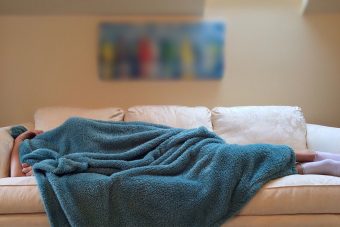I find that a good night’s sleep is crucial to the success of my morning routine and therefore my day. A good night’s sleep and no hangover means I wake up feeling fresh. I’m immediately and automatically in a positive mindset ready to get stuck into the day. Moreover my mind is clear, I feel less stressed and feel energised for longer during the day.
The Sleep Health Foundation have just published some alarming statistics which suggest that only 5 per cent of Australians achieve a good night’s sleep every night and 65% suffer from sleep deprivation or disturbed sleep.
A chronic lack of sleep doesn’t just make us feel foggy and lethargic, it weakens the immune system, affects our memory and has been linked to range of mental and physical problems from from depression to diabetes, obesity, cancer and mood disorders. It is also indirectly related to poor alertness which is responsible for almost 10,000 serious workplace injuries and more than 25,000 serious road crash injuries each year, costing the economy over $5 billion a year in lost productivity and healthcare costs.
Dr Moira Junge, a psychologist and board member of the Sleep Health Foundation, attributes the lack of a good night’s sleep to several causes:
TECHNOLOGY
“People were saying that the survey was a bit overstated – ‘do you really think it’s an epidemic?’ Well, it is really. It’s 10 years since the iPhone, it’s six years since the iPad. We haven’t understood that it’s going to catch up with us at some point. You can’t think that you can be in your bedroom on your devices and it not have an effect on your sleep.”
More than 50 per cent of those in the Sleep Health Foundation study were on their phones right up until sleep and first thing when they woke up. This leaves us overstimulated and overexposed to the blue light spectrum of our devices, which suppresses the sleep hormone, melatonin.
“What we all get today in terms of information each day is what we would have got in one month, before we had all this technology at our finger tips,” Junge says”.
OVER STRESSED
Junge continues “What I’ve noticed in the people I see who have a diagnosed sleep problem such as insomnia is that their stress levels are disproportionate,” Junge says. “They haven’t got the personal or financial resources to cope with the stress in their life and the demands of the fast-paced life.”
Longer hours in the office, in unnatural light affects our circadian rhythmand for many, there is an expectation that we respond to texts and emails after hours and even over the weekend.
SO WHAT’S THE ANSWER ?
I don’t think there is any one size fits all answer. For me its earlier to bed and no alcohol but for others it may mean no technology and no emails.
Junge has some suggestions too.
“You have to take bigger steps around your general approach to your health, your general approach to your work-life balance, your nutrition, your physical fitness, your ability to manage stress, your ability to manage relationships and to turn your devices off and have boundaries around your technology,” she says. “That is what is going to help, not the special product. No amount of sleep tea or drug – even Stilnox, for instance, has had a whole stack of clinical trials and it’s a valid thing – that still doesn’t cut the mustard long-term if you don’t manage these other things.”
Finally, I would definitely agree with one of the comments from the survey “What is life-changing is that you can accomplish more when you’re awake less”.
Original Post from Mental Toughness Partners


